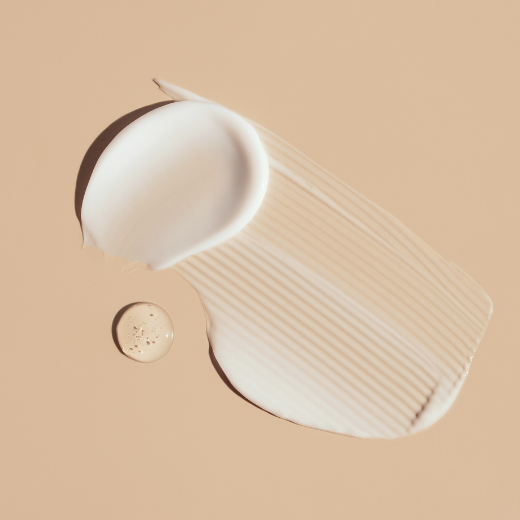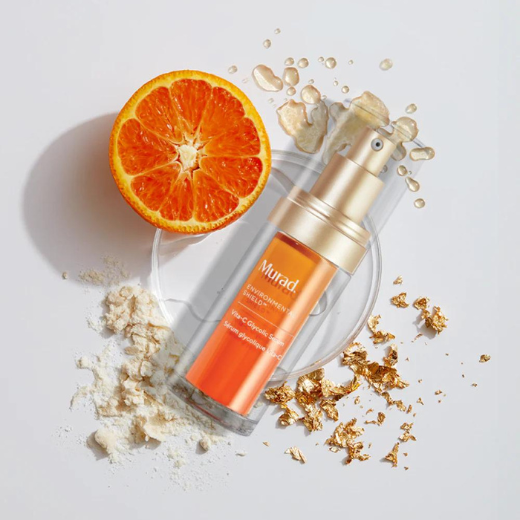How To Combine Niacinamide with Other Ingredients
Posted by Ellie Swain on Jun 18th 2024
If you've been keeping up with the latest trends and breakthroughs in skincare, you've probably heard of niacinamide. This magical ingredient is the talk of the town - and for good reason. It tackles everything from acne and redness to fine lines and uneven skin tone.
But what happens when you mix niacinamide with other ingredients in your skincare routine? Can it play well with others, or is it a lone wolf? Find out here.
The Versatility of Niacinamide
Niacinamide, also known as vitamin B3, is like the Swiss Army knife of skincare. It’s incredibly versatile and suitable for all skin types. It helps control oil production, reduces inflammation, improves barrier function, and even helps your skin fight off environmental damage.
Whether you're dealing with early signs of aging or combating adult acne, niacinamide has your back. Even for those with sensitive or rosacea-prone skin, niacinamide comes through as a gentle yet effective treatment option. It's more than just a quick fix - it can be a long-term solution for various skin woes.
And the best part? Niacinamide is usually well-tolerated, making it a great addition to almost any skincare regimen. With niacinamide, you're not just addressing one issue; you're offering your skin a multifaceted approach to wellness.
Now, wouldn’t it be great if this all-star ingredient could team up with others to give you even more fabulous results? Good news: it can.

Niacinamide + Hyaluronic Acid: The Hydration Heroes
If there's one thing better than an ingredient that does it all, it's two ingredients that work amazingly well together. Enter hyaluronic acid - the hydration hero. When you combine niacinamide with hyaluronic acid, you're essentially giving your skin a hydration boost while balancing oil production.
Hyaluronic acid brings in moisture, and niacinamide ensures it's evenly distributed without making your skin oily. It's a win-win.
Try incorporating a hyaluronic acid, like the Dermalogica Clear Start Cooling Aqua Jelly Moisturizer, into your skincare routine alongside niacinamide for quenched and plump skin.
Niacinamide + Retinol: The Anti-Aging Dream Team
Retinol is another heavyweight in the skincare world, known for its potent anti-aging and acne-fighting capabilities. But let's face it - retinol can be a bit harsh, especially for sensitive skin. This is where niacinamide steps in.
Not only does niacinamide help alleviate the irritation and redness that retinol can cause, but it also enhances the benefits of your anti-aging regimen. When used together, they become a powerhouse duo, helping reduce the appearance of wrinkles and improve skin texture without causing unnecessary irritation. Talk about teamwork.
A retinol treatment, like the Dermalogica Overnight Retinol Repair, is the perfect ally for your niacinamide.
Niacinamide and Vitamin C: Proceed with Caution
Ah, vitamin C - the brightening boss. Now you might have heard some conflicting advice about mixing niacinamide and vitamin C. Old skincare myths warned against combining these two, claiming they neutralize each other. But newer research suggests that this isn’t the case.
In fact, niacinamide and vitamin C can work well together to give you brighter, smoother skin. However, there’s a catch. Both are active ingredients, and using them together can potentially irritate sensitive skin.
If you're keen on trying this combo, it’s a good idea to patch-test first or introduce the mixture gradually. Try starting with a vitamin C serum, like the Murad Vita-C Glycolic Serum.
What to Avoid Mixing with Niacinamide
While niacinamide plays well with most ingredients, there are some you should avoid pairing it with. For example, mixing niacinamide with acidic ingredients like glycolic or lactic acid can cause flushing and potential irritation. It's not that you can't use these ingredients in your overall routine, but it's usually better to use them at different times of the day or on alternate days to play it safe.
And if you're using skincare products for a specific medical condition, such as eczema or rosacea, adding niacinamide into the mix could potentially interfere with your medication.
Last but not least, keep an eye out for alcohol in skincare products. Alcohol can counteract niacinamide's benefits, making skin more sensitive and prone to dryness.
When it comes to skincare, one ingredient rarely does it all (as convenient as that would be). However, niacinamide is incredibly versatile and can safely and effectively be combined with a variety of other potent skincare ingredients.
Remember, everyone's skin is different. What works for your bestie may not work for you, so it's always a good idea to patch-test new combinations and consult with a dermatologist if you need more clarification.
Whether you're looking to boost hydration, tackle signs of aging, or brighten your complexion, there's likely a perfect pairing with niacinamide that can help you achieve your skincare goals.
Do you want more skincare advice? Here’s our ultimate guide to the best ingredients for facial serums.


